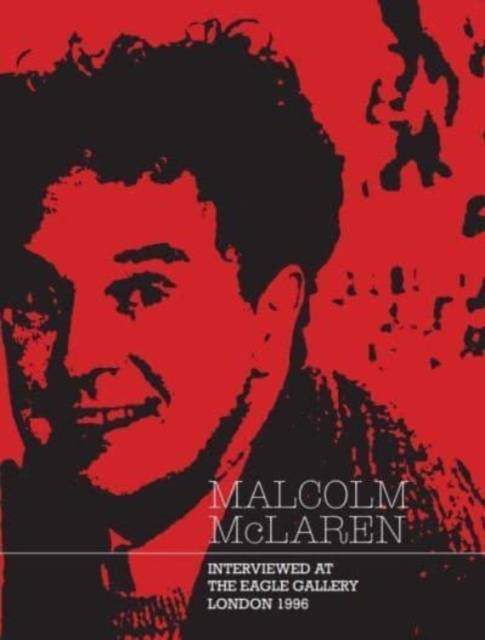
- Retrait gratuit dans votre magasin Club
- 7.000.000 titres dans notre catalogue
- Payer en toute sécurité
- Toujours un magasin près de chez vous
- Retrait gratuit dans votre magasin Club
- 7.000.0000 titres dans notre catalogue
- Payer en toute sécurité
- Toujours un magasin près de chez vous
Malcolm McLaren
Interviewed at The Eagle Gallery, London 1996
Malcolm McLaren, Andrew Wilson, Paul Stolper
Livre broché | Anglais
13,95 €
+ 27 points
Description
Previously unpublished interview with Malcolm McLaren, the progenitor of punk, clearly outlining his motivations and ambitions, while also personally reappraising punk’s legacy 20 years later.
Malcolm McLaren, Interviewed at The Eagle Gallery, London 1996, prints for the first time a 1996 interview with the artist and pop impresario Malcolm McLaren. He reflects on punk as an artistic project, while also offering a unique insight into the thinking behind the visual iconography that surrounded the Sex Pistols.
Just as the clothes that McLaren designed with Vivienne Westwood in the 1970s have been seen as punk fashion, so has the music of the Sex Pistols – the band he managed – and the associated graphics by Jamie Reid been understood to define the character of punk. Twenty years after the event, McLaren for the first time offers a reappraisal of punk as a collaborative artistic production defined as much more than just music or fashion.
The interview is accompanied by a full photographic documentation of McLaren giving the interview through which you can see him in the act of reformulating his response to punk with the recognition that it was the result of his artistic activity. For the rest of his life McLaren became increasingly focused on art activity, through film and installation.
A short afterword by Young Kim (McLaren’s partner) and by Andrew Wilson (co-publisher of the book) sets the interview into context.
The interview and accompanying photo-portrait of McLaren offers unique insights into the creation of punk.
Malcolm McLaren, Interviewed at The Eagle Gallery, London 1996, prints for the first time a 1996 interview with the artist and pop impresario Malcolm McLaren. He reflects on punk as an artistic project, while also offering a unique insight into the thinking behind the visual iconography that surrounded the Sex Pistols.
Just as the clothes that McLaren designed with Vivienne Westwood in the 1970s have been seen as punk fashion, so has the music of the Sex Pistols – the band he managed – and the associated graphics by Jamie Reid been understood to define the character of punk. Twenty years after the event, McLaren for the first time offers a reappraisal of punk as a collaborative artistic production defined as much more than just music or fashion.
The interview is accompanied by a full photographic documentation of McLaren giving the interview through which you can see him in the act of reformulating his response to punk with the recognition that it was the result of his artistic activity. For the rest of his life McLaren became increasingly focused on art activity, through film and installation.
A short afterword by Young Kim (McLaren’s partner) and by Andrew Wilson (co-publisher of the book) sets the interview into context.
The interview and accompanying photo-portrait of McLaren offers unique insights into the creation of punk.
Spécifications
Parties prenantes
- Auteur(s) :
- Editeur:
Contenu
- Nombre de pages :
- 40
- Langue:
- Anglais
Caractéristiques
- EAN:
- 9781916023352
- Date de parution :
- 30-07-23
- Format:
- Livre broché
- Dimensions :
- 140 mm x 180 mm
- Poids :
- 96 g

Les avis
Nous publions uniquement les avis qui respectent les conditions requises. Consultez nos conditions pour les avis.






